Description
Otho – Emperor 15 January to 16 April 69 AD
He was the second emperor of the Year of the Four Emperors.
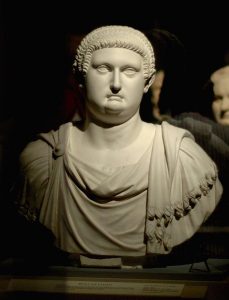
Bust of Otho
Marcus Salvius Otho was a remarkable yet controversial figure in the annals of Roman history. Born into a noble Etruscan family on April 28, 32 AD, Otho led a life filled with grand ambition and tumultuous reign.
His short-lived rule as a Roman emperor in the infamous “Year of the Four Emperors,” 69 AD, came during significant political instability and was marked by the swift succession of leaders.
Before becoming emperor, Otho had a close relationship with Emperor Nero, the fifth emperor of the Roman Empire. They shared similar decadent lifestyles and indulged in extravagant pleasures. This relationship led Otho to political prominence when he was appointed as the governor of Lusitania (modern-day Portugal and part of Spain) in 58 AD. This position, which he held for a decade, was significant as it allowed Otho to demonstrate his administrative capabilities.
However, the close relationship between Otho and Nero was strained when Poppaea Sabina, Otho’s wife, caught Nero’s attention. To remove his rival, Nero banished Otho to Lusitania under the guise of governorship. This exile turned out to be beneficial to Otho as he demonstrated his administrative prowess and gained the loyalty of the legions stationed there.
The Year of the Four Emperors started with the fall of Nero in June 68 AD, marking the end of the Julio-Claudian dynasty. Galba, a senior and respected governor of Hispania, quickly seized power. His harsh fiscal policies and refusal to pay the Praetorian Guard the donative he had promised led to discontent. Seeing an opportunity, Otho, who had allied himself with Galba hoping for a political resurgence, was disillusioned when Galba adopted Lucius Calpurnius Piso Licinianus as his successor instead of him.
In January 69 AD, Otho initiated a coup against Galba. With the support of disgruntled Praetorian Guard soldiers, who were promised a hefty donative, Otho was able to overthrow and execute Galba swiftly. The Senate declared Otho emperor, and he began his reign by attempting to win public favor. He honored Nero’s memory, aware of Nero’s popularity with the lower classes, and tried to enact policies that would appeal to the public.
Despite his efforts, Otho’s reign was marked by civil unrest and challenges to his rule. Vitellius, the governor of Germania Inferior, also declared himself emperor, and a clash between the two became inevitable. The decisive Battle of Bedriacum in April 69 AD saw Otho’s forces defeated by those of Vitellius.
With the news of the defeat, Otho chose to take his life rather than plunge the Empire into further civil war. His reign had lasted a mere three months.
The Year of the Four Emperors continued with the ascendance of Vitellius, who Vespasian overthrew in December 69 AD. Vespasian’s ascension marked the beginning of the Flavian dynasty and brought some stability back to the Roman Empire.
Coin details:
Obverse: IMP OTHO CAESAR AVG TR P, bare head right.
Reverse: PAX ORBIS TERRARVM, Pax standing left holding an olive branch and caduceus.
Diameter: 19 mm
24k Gold plated
Packaged in a coin collecting flip with the description of the coin printed on the flip insert.
Made in the USA

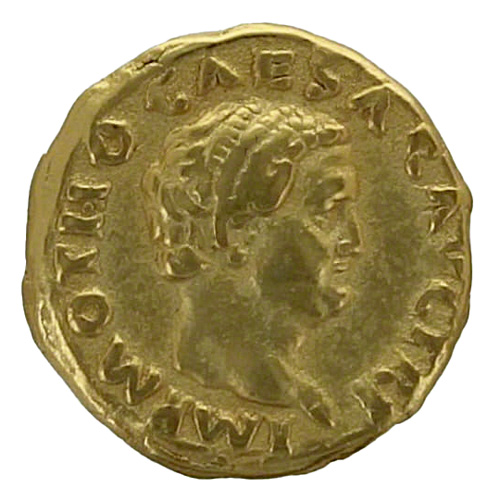
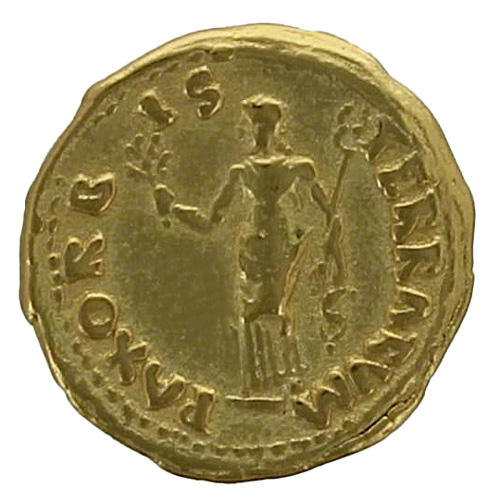
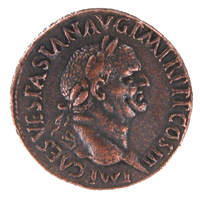
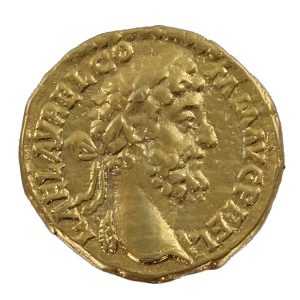
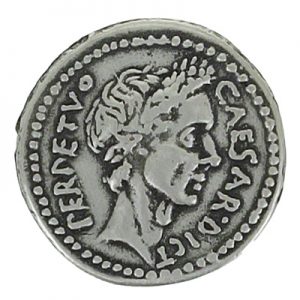

Reviews
There are no reviews yet.